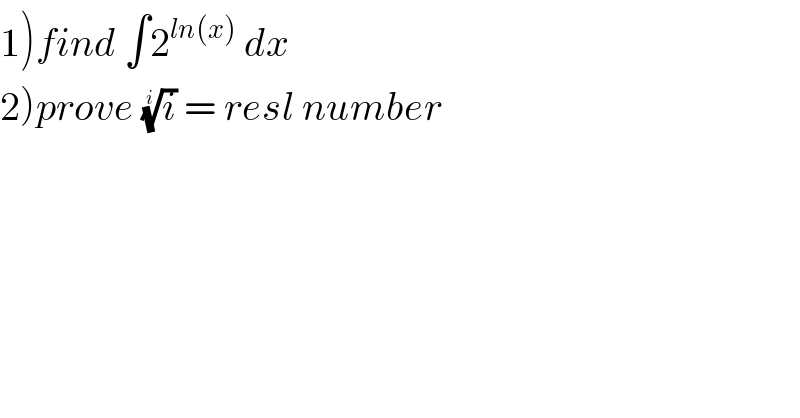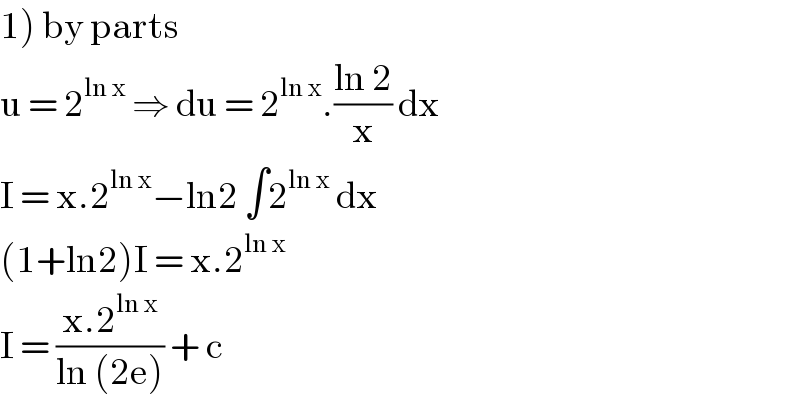
Question and Answers Forum
Question Number 87833 by M±th+et£s last updated on 06/Apr/20

Commented by mr W last updated on 06/Apr/20

Commented by john santu last updated on 06/Apr/20

Commented by M±th+et£s last updated on 06/Apr/20

Commented by M±th+et£s last updated on 06/Apr/20

Commented by mathmax by abdo last updated on 06/Apr/20

Answered by petrochengula last updated on 06/Apr/20

